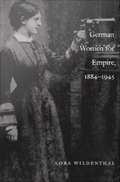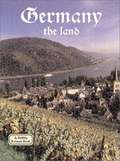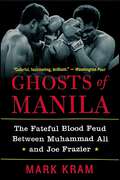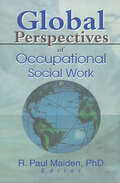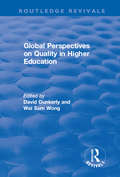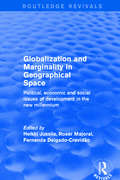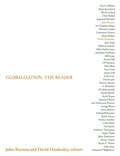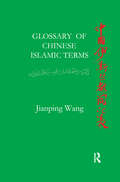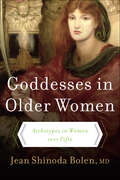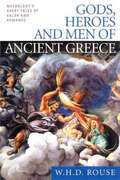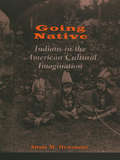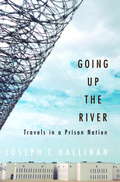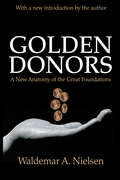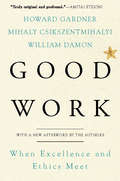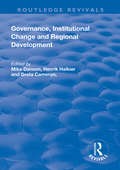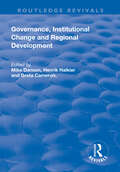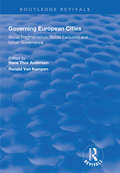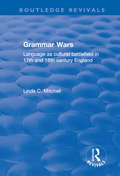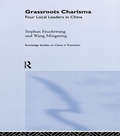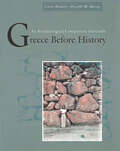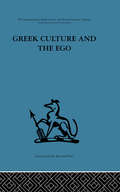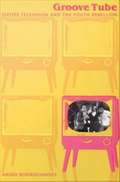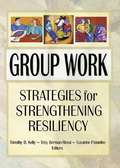- Table View
- List View
German Women for Empire, 1884-1945
by Lora WildenthalWhen Germany annexed colonies in Africa and the Pacific beginning in the 1880s, many German women were enthusiastic. At the same time, however, they found themselves excluded from what they saw as a great nationalistic endeavor. In German Women for Empire, 1884-1945 Lora Wildenthal untangles the varied strands of racism, feminism, and nationalism that thread through German women's efforts to participate in this episode of overseas colonization. In confrontation and sometimes cooperation with men over their place in the colonial project, German women launched nationalist and colonialist campaigns for increased settlement and new state policies. Wildenthal analyzes recently accessible Colonial Office archives as well as mission society records, periodicals, women's memoirs, and fiction to show how these women created niches for themselves in the colonies. They emphasized their unique importance for white racial "purity" and the inculcation of German culture in the family. While pressing for career opportunities for themselves, these women also campaigned against interracial marriage and circulated an image of African and Pacific women as sexually promiscuous and inferior. As Wildenthal discusses, the German colonial imaginary persisted even after the German colonial empire was no longer a reality. The women's colonial movement continued into the Nazi era, combining with other movements to help turn the racialist thought of the late-nineteenth and early-twentieth centuries into the hierarchical evaluation of German citizens as well as colonial subjects. Students and scholars of women's history, modern German history, colonial politics and culture, postcolonial theory, race/ethnicity, and gender will welcome this groundbreaking study.
Germany the Land (Lands, Peoples, and Cultures Ser.)
by Kathryn LaneIntroduces the geography, cities, transportation, economy, and wildlife of Germany.
Ghosts of Manila: The Fateful Blood Feud Between Muhammad Ali and Joe Frazier
by Mark Kram Jr.When Muhammad Ali met Joe Frazier in Manila for their third fight, their rivalry had spun out of control. The Ali-Frazier matchup had become a madness, inflamed by the media and the politics of race. When the "Thrilla in Manila" was over, one man was left with a ruin of a life; the other was battered to his soul. Mark Kram covered that fight for Sports Illustrated in an award-winning article. Now his riveting book reappraises the boxers -- who they are and who they were. And in a voice as powerful as a heavyweight punch, Kram explodes the myths surrounding each fighter, particularly Ali. A controversial, no-holds-barred account, Ghosts of Manila ranks with the finest boxing books ever written.
Global Perspectives of Occupational Social Work
by Paul MaidenExplore the history and practice of social work around the world! This fascinating book presents a broad international survey of the development and current practices of occupational social work. Covering seven countries around the world, Global Perspectives of Occupational Social Work offers a unique cross-cultural perspective on issues of interest to social workers everywhere. From India to Ireland, issues of training, sexual harassment, and workplace health and safety are remarkably similar and intriguingly varied. Global Perspectives of Occupational Social Work describes the evolution of social work in factories and, later, in offices. When industrialization brought women into factories, owners hired nurses or governesses to guard, chaperone, and advise the young women in their employ. Since then occupational social work has sought to keep a balance between the interests of management and workers. In addition to discussing history and professional development, Global Perspectives of Occupational Social Work reveals the way professionals like you handle the same situations you face every day, including: the shift toward privatization corporate restructuring and downsizing developing alcohol and substance abuse interventions creating employee assistance programs racism and sexism in the workplace HIV/AIDS and other health problems workplace violenceCovering Australia, India, Germany, Ireland, South Africa, Israel, and the US, Global Perspectives of Occupational Social Work is a major contribution to the professional literature. Not only will this book increase international awareness, it may supply you with unique perspectives and fresh strategies for solving the problems your colleagues in Jerusalem and Pretoria also face.
Global Perspectives on Quality in Higher Education (Routledge Revivals)
by DAVID DUNKERLEY AND WAI SUM WONGThis title was first published in 2001: An edited collection of essays from experts in the field of quality assurance in higher education. Each contributor provides a summary of recent developments in the respective countries centred on specific themes. They include an outline of the nature of higher education in the various countries, a description of recent developments in higher education quality assurance mechanisms together with discussions of the role of government, funding, the implications of emerging new trends such as distance learning, and non-traditional modes of delivery and assessment. The book should be of use to those working in higher education - both academics and policy makers - because of its comparative focus and ability to compare strategies and structures from one country to another. Similarly those working directly in assuring quality issues should also find the volume valuable.
Globalization and Marginality in Geographical Space: Political, Economic and Social Issues of Development at the Dawn of New Millennium
by Heikki Jussila, Roser Majoral, Fernando Delgado-CravidãoThis title was first published in 2001. An examination of globalization and marginality in geographical space, it discusses the issue of marginalization and the effects that economic globalization have on marginal and critical regions from the point of view of politics and policies and the shift from economic to social issues of development.
Globalization: The Reader
by John Benyon David DunkerleyGlobalization: The Reader addresses the big issues: communications and global media, political economy, cultural homogeneity and heterogeneity, new technologies, tourism, beliefs, and identity.
Glossary of Chinese Islamic Terms
by Jiangping WangThe most comprehensive glossary to date of Hui Muslim terms and the first to fully match the Chinese term (stated in Chinese script and pinyin) to its Arabic or Persian counterpart (stated in Arabic script with Latin transcription).
Goddesses in Older Women: Archetypes in Women Over Fifty
by Jean Shinoda BolenAt some point after fifty, every woman crosses a threshold into the third phase of her life. As she enters this uncharted territory -- one that is generally uncelebrated in popular culture -- she can choose to mourn what has gone before, or she can embrace the juicy-crone years.In this celebration of Act Three, Jean Shinoda Bolen, Jungian analyst and bestselling author of Goddesses in Everywoman, names the powerful new energies and potentials -- or archetypes -- that come into the psyche at this momentous time, suggesting that women getting older have profound and exciting reasons for welcoming the other side of fifty.
Gods, Heroes and Men of Ancient Greece: Mythology's Great Tales of Valor and Romance
by W. H. D. RouseThe Adventures that Shaped the Western World First published in 1934, Gods, Heroes and Men of Ancient Greece has become one of the most popular, enduring--and captivating--retellings of the ancient myths for modern readers. Recognizing the sheer entertainment value of these timeless adventures, world renowned classical scholar W. H. D. Rouse delighted his students at the Perse School in Cambridge, England, with a conversational style and childlike wonder that made the legends come alive--a rare storytelling gift that continues to engage young and old alike. Many of the characters in this book are familiar to us--Helen of Troy, Icarus, Zeus, Athena, to name just a few--but rarely have their stories of war and adventure, bravery and romance, been so simply and thrillingly told. From the strong-arm heroics of Heracles, to the trickery of the Trojan Horse, from the seductions of Circe the sorceress, to the terrors of the Cyclops and Minotaur, these legends have outlived the culture that bore them. But while the ancient Greeks may be long gone, their fables and morals, their heroes and heroines, live on today hellip;
Going Native: Indians in the American Cultural Imagination
by Shari M. HuhndorfSince the 1800's, many European Americans have relied on Native Americans as models for their own national, racial, and gender identities. Displays of this impulse include world's fairs, fraternal organizations, and films such as Dances with Wolves. Shari M. Huhndorf uses cultural artifacts such as these to examine the phenomenon of "going native," showing its complex relations to social crises in the broader American society--including those posed by the rise of industrial capitalism, the completion of the military conquest of Native America, and feminist and civil rights activism. Huhndorf looks at several modern cultural manifestations of the desire of European Americans to emulate Native Americans. Some are quite pervasive, as is clear from the continuing, if controversial, existence of fraternal organizations for young and old which rely upon "Indian" costumes and rituals. Another fascinating example is the process by which Arctic travelers "went Eskimo," as Huhndorf describes in her readings of Robert Flaherty's travel narrative, My Eskimo Friends, and his documentary film, Nanook of the North. Huhndorf asserts that European Americans' appropriation of Native identities is not a thing of the past, and she takes a skeptical look at the "tribes" beloved of New Age devotees. Going Native shows how even seemingly harmless images of Native Americans can articulate and reinforce a range of power relations including slavery, patriarchy, and the continued oppression of Native Americans. Huhndorf reconsiders the cultural importance and political implications of the history of the impersonation of Indian identity in light of continuing debates over race, gender, and colonialism in American culture.
Going Up the River: Travels in a Prison Nation
by Joseph T. HallinanThe American prison system has grown tenfold in thirty years, while crime rates have been relatively flat: 2 million people are behind bars on any given day, more prisoners than in any other country in the world -- half a million more than in Communist China, and the largest prison expansion the world has ever known. In Going Up The River, Joseph Hallinan gets to the heart of America's biggest growth industry, a self-perpetuating prison-industrial complex that has become entrenched without public awareness, much less voter consent. He answers, in an extraordinary way, the essential question: What, in human terms, is the price we pay? He has looked for answers to that question in every corner of the "prison nation," a world far off the media grid -- the America of struggling towns and cities left behind by the information age and desperate for jobs and money. Hallinan shows why the more prisons we build, the more prisoners we create, placating everyone at the expense of the voiceless prisoners, who together make up one of the largest migrations in our nation's history.
Golden Donors: A New Anatomy of the Great Foundations
by Waldemar A. NielsenThe world of the golden donors - the rich and influential philanthropic foundations - is quite likely the least known and yet most pervasive of all the invisible money and power networks in America. Nielsen explores the 36 largest of the 22,000 currently active foundations. He takes the reader inside each of the giants to analyze its people, policies, and performance. From the most famous, Ford and MacArthur, to the most obscure, Mabee and Moody, the author lets in daylight and lets out the bats as well as the butterflies. Golden Donors is a journey through 36 flefdoms, each of which controls upwards of $250 million dollars, beyond the reach of the IRS, in order to encourage medical research, support cultural and artistic endeavors, and not least, to buttress immensely expensive educational institutions. Which of the great foundations in recent years have been spectacular successes and which are failures? Is today's leadership in the third-stream economy equal to the task? Are foundations, seedbeds or killing grounds of new social and political ideas? And what is the federal government, and a variety of administrations, doing to help or harm this new economy? Nielsen provides many surprising and some quite startling answers for the millions of Americans whose lives the golden donors directly or indirectly affect. When Golden Donors first appeared, A. Bartlett Giamatti praised it as an historical guide, a shrewd critique, and an impassioned warning. "This remarkable book on the nation's largest foundations must be ready by anyone concerned with America's unique not-for-profit sector and the quality of our national life." Kingman Brewster saw the book as "a revealing mirror held up to the faces of big philanthropy...a must book for foundation creators and leaders." Thornton F. Bradsahw said, "Golden Donors describes the large American foundations, what they are how they got that way, and wherein lies their strength and their potential. The book is wise, witty, and perceptive - indispensable reading."
Good Work: When Excellence and Ethics Meet
by Howard GardnerWhat does it mean to carry out "good work"? What strategies allow people to maintain moral and ethical standards at a time when market forces wield unprecedented power and work life is being radically altered by technological innovation? These are the questions at the heart of this important collaboration by three leaders in psychology. Enlivened with stories of real people facing hard decisions, Good Work offers powerful insight into one of the most important issues of our time and, indeed, into the future course of science, technology, and communication.
Governance, Institutional Change and Regional Development (Routledge Revivals)
by Henrik Halkier Mike Danson Greta CameronThis title was first published in 2000: This volume addresses the prominent role given to institution-building, institutional change and governance in the regional development strategies and policies. The establishment of the Scottish Parliament, Welsh and Northern Ireland Assemblies, and the arrival of regional development agencies in England highlighted the need to put the initiatives into some context, drawing on experience from across Europe on the critical factors in the determination of the potential and success of regions. Central to the discussions presented here by a group of European experts are the question of governance - how does an ongoing process of institution-building affect the ways in which regions and localities are governed, including questions of democracy, participation, regional self-determination, public-private partnerships, networks and accountability; and the consequences of new modes of governance and institutional change for regional development strategies and policies, particularly in the context of large-scale industrial restructuring and city-region and urban regeneration.
Governance, Institutional Change and Regional Development (Routledge Revivals)
by Henrik Halkier Mike Danson Greta CameronThis title was first published in 2000: This volume addresses the prominent role given to institution-building, institutional change and governance in the regional development strategies and policies. The establishment of the Scottish Parliament, Welsh and Northern Ireland Assemblies, and the arrival of regional development agencies in England highlighted the need to put the initiatives into some context, drawing on experience from across Europe on the critical factors in the determination of the potential and success of regions. Central to the discussions presented here by a group of European experts are the question of governance - how does an ongoing process of institution-building affect the ways in which regions and localities are governed, including questions of democracy, participation, regional self-determination, public-private partnerships, networks and accountability; and the consequences of new modes of governance and institutional change for regional development strategies and policies, particularly in the context of large-scale industrial restructuring and city-region and urban regeneration.
Governing European Cities: Social Fragmentation, Social Exclusion and Urban (Routledge Revivals)
by Hans Thor AndersenThis title was first published in 2001. This volume is a result of the action COST A9 "Civitas - Transformation of European Cities and Urban Governance", launched in 1995, which looks at the emergence of the urban question. The COST framework is a European mechanism to provide scientific and technical assistance for national research programmes. The text covers the change in the importance of European cities and analyzes how each city re-formulates its policies and methods of governing in response to these changes. This text is to analyze the new forms of urban governance using three points of view, a statistical approach, an economic approach and a sociological approach. This book tackles the fragmentation and social exclusion that occurs in urban society and explores the different forms it takes throughout Europe. It also presents some strategies to combat or at least regulate this fragmentation, to ensure a united European city.
Grammar Wars: Language as Cultural Battlefield in 17th and 18th Century England (Routledge Revivals)
by Linda C MitchellThis title was first published in 2001: Although 17th- and 18th-century English language theorists claimed to be correcting errors in grammar and preserving the language from corruption, this new study demonstrates how grammar served as an important cultural battlefield where social issues were contested. Author Linda C. Mitchell situates early modern linguistic discussions, long thought to be of little interest, in their larger cultural and social setting to show the startling degree to which grammar affected, and was affected by, such factors as class and gender. In her examination of the controversies that surrounded the teaching and study of grammar in this period, Mitchell looks especially at changing definitions and standardization of "grammar", how and to whom it was taught, and how grammar marked the social position of marginal groups. Her comprehensive study of the contexts in which grammar was intended or thought to function is based on her analysis of the ancillary materials - prefaces, introductions, forewords, statements of intent, organization of materials, surrounding materials, and manifestos of pedagogy, philosophy, and social or political goals - of more than 300 grammar texts of the time. The book is intended as a landmark study of an important movement in the foundation of the modern world.
Grassroots Charisma: Four Local Leaders in China (Routledge Studies on China in Transition #Vol. 10)
by Stephan Feuchtwang Wang MingmingThis book relates the stories of four leaders under very different political regimes: Colonial, Nationalist and Communist. The authors compare Chinese notions of respect and inspiration with their equivalents in other religious and political histories of colonial and post-colonial modernity, thereby producing a thorough re-working of the idea of charisma. The result is an intriguing study of the relationship between religious and political authority in a changing world.
Greater Portland: Urban Life and Landscape in the Pacific Northwest
by Carl AbbottSelected by Choice magazine as an Outstanding Academic Title for 2001<P><P> It has been called one of the nation's most livable regions, ranked among the best managed cities in America, hailed as a top spot to work, and favored as a great place to do business, enjoy the arts, pursue outdoor recreation, and make one's home. Indeed, years of cooperative urban planning between developers and those interested in ecology and habitability have transformed Portland from a provincial western city into an exemplary American metropolis. Its thriving downtown, its strong neighborhoods, and its pioneering efforts at local management have brought a steady procession of journalists, scholars, and civic leaders to investigate the "Portland style" that values dialogue and consensus, treats politics as a civic duty, and assumes that it is possible to work toward public good.Probing behind the press clippings, acclaimed urban historian Carl Abbott examines the character of contemporary Portland--its people, politics, and public life--and the region's history and geography in order to discover how Portland has achieved its reputation as one of the most progressive and livable cities in the United States and to determine whether typical pressures of urban growth are pushing Portland back toward the national norm.In Greater Portland, Abbott argues that the city cannot be understood without reference to its place. Its rivers, hills, and broader regional setting have shaped the economy and the cityscape. Portlanders are Oregonians, Northwesteners, Cascadians; they value their city as much for where it is as for what it is, and this powerful sense of place nurtures a distinctive civic culture. Tracing the ways in which Portlanders have talked and thought about their city, Abbott reveals the tensions between their diverse visions of the future and plans for development.Most citizens of Portland desire a balance between continuity and change, one that supports urban progress but actively monitors its effects on the region's expansive green space and on the community's culture. This strong civic participation in city planning and politics is what gives greater Portland its unique character, a positive setting for class integration, neighborhood revitalization, and civic values. The result, Abbott confirms, is a region whose unique initiatives remain a model of American urban planning.
Greece Before History: An Archaeological Companion and Guide
by Curtis Runnels Priscilla MurrayThis book, a guide and companion to the prehistoric archaeology of Greece, is designed for students, travelers, and all general readers interested in archaeology. Greece has perhaps the longest and richest archaeological record in Europe, and this book reviews what is known of Greece from the earliest inhabitants in the Stone Age to the end of the Bronze Age and the collapse of the Minoan and Mycenaean civilizations. The book describes the prehistoric cultures of Greece in chronological order, and illustrates with 98 detailed drawings each culture's typical artifacts, architecture, burial customs, and art. Written in an informal and accessible style free of scientific jargon, the book can be used in the classroom or as a guide for the traveler, or read simply for pleasure by anyone with a curiosity about the earliest ages of this fascinating region. Although intended for a wide audience, the book has a solid scientific foundation. The authors are professional archaeologists with more than 25 years of experience in the field and with a first-hand knowledge of the methods and results of contemporary research. There is no other book today that covers the same range of periods and subjects, making it essential reading for anyone interested in the early civilizations that shaped the Greek landscape, laid the foundations for Classical Greek civilization, and contributed in many ways to the formation of the modern Greek world. The authors have been careful to address the many questions concerning prehistoric Greece that have been asked them by students and visitors to Greece through the years. The illustrations were created especially for this book, showing familiar artifacts and sites from a new perspective, and selecting others for illustration that rarely, if ever, appear in popular publications.
Greek Culture and the Ego: A psycho-analytic survey of an aspect of Greek civilization and of art
by Adrian StokesTavistock Press was established as a co-operative venture between the Tavistock Institute and Routledge & Kegan Paul (RKP) in the 1950s to produce a series of major contributions across the social sciences. This volume is part of a 2001 reissue of a selection of those important works which have since gone out of print, or are difficult to locate. Published by Routledge, 112 volumes in total are being brought together under the name The International Behavioural and Social Sciences Library: Classics from the Tavistock Press. Reproduced here in facsimile, this volume was originally published in 1958 and is available individually. The collection is also available in a number of themed mini-sets of between 5 and 13 volumes, or as a complete collection.
Groove Tube: Sixties Television and the Youth Rebellion
by Aniko BodroghkozyCritics often claim that prime-time television seemed immune--or even willfully blind--to the landmark upheavals rocking American society during the 1960s. Groove Tube is Aniko Bodroghkozy's rebuttal of this claim. Filled with entertaining and enlightening discussions of popular shows of the time--such as The Monkees, The Smothers Brothers Comedy Hour, The Mod Squad--this book challenges the assumption that TV programming failed to consider or engage with the decade's youth-lead societal changes. Bodroghkozy argues that, in order to woo an increasingly lucrative baby boomer audience, television had to appeal to the social and political values of a generation of young people who were enmeshed in the hippie counterculture, the antiwar movement, campus protests, urban guerilla action--in general, a culture of rebellion. She takes a close look at the compromises and negotiations that were involved in determining TV content, as well as the ideological difficulties producers and networks faced in attempting to appeal to a youthful cohort so disaffected from dominant institutions. While programs that featured narratives about hippies, draft resisters, or revolutionaries are examined under this lens, Groove Tube doesn't stop there: it also examines how the nation's rebellious youth responded to these representations. Bodroghkozy explains how, as members of the first "TV generation," some made sense of their societal disaffection in part through their childhood experience with this powerful new medium. Groove Tube will interest sociologists, American historians, students and scholars of television and media studies, and others who want to know more about the 1960s.
Group Treatment for Substance Abuse
by Gaylyn Maurer Mary VelasquezThis practical manual presents a 29-session treatment program designed to engage, motivate, and stimulate processes of change in clients at all stages of recovery. The program is based on the research-supported transtheoretical model of behavior change. The manual describes skills-building activities and interventions that are likely to be most effective with clients as they cycle from the earlier stages of change precontemplation, contemplation, and preparation to the later stages, action and maintenance. Each of the structured sessions is presented in a consistent, highly accessible format, including a clear rationale, summary of objectives, and overview of the main activities that will take place. Step-by-step guidelines for implementation are provided, as well as strategies for using a motivational interviewing style. The manual is complete with all needed handouts and exercise forms, ready to photocopy and distribute to clients. Ideal for use with groups, the approach can easily be adapted to individual treatment.
Group Work: Strategies for Strengthening Resiliency
by Timothy B. Kelly Toby Berman-Rossi Susanne PalomboExplore the latest research and practice information in group work!Group Work: Strategies for Strengthening Resiliency is a collection of research and information presented at the Twentieth Annual International Symposium on Social Work with Groups. Resiliency issues are explored in relation to children, couples, managers, survivors of torture, poor women, HIV/AIDS affected youth, and other population groups. The contributors were keynote speakers and paper presenters at the symposium. They represent a wide range of fields of practice and experience.For social workers, students, educators, and practitioners, this volume examines how group work can improve resiliency in your community. Here's a sample of what you'll find inside: Keynote Speaker Jeremy Woodcock's experiences in his groundbreaking resiliency work with victims of torture Alex Gitterman's brilliant exposition of the notions of resiliency and vulnerability--he outlines the current thinking and puts it into a group work context case examples that illustrate resiliency in children a discussion of how residential settings can function like a 24-hour group and how to use that group effectively to strengthen the resiliency of the residents a way to use groups to help develop social and economic capital for poor women through investment clubs group themes and practice strategies for group work with couples who have differing HIV statusGroup Work: Strategies for Strengthening Resiliency also contains chapters reflecting the personal experiences of the authors. One shares her transformation from a worker who did case work in a group into a social group worker. Another shares a reminiscence of a personal journey during her formative years as a budding group worker.From its description of how the use of group work principles and skills can benefit managers and programs to its challenge to group workers to incorporate some community work skills into their repertoire, Group Work: Strategies for Strengthening Resiliency is more than a fascinating read--it is a tool to help you keep abreast of the latest theory and practice in this ever-changing field.
